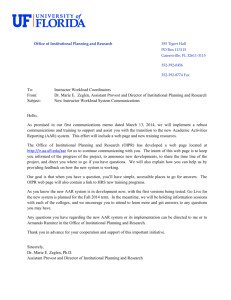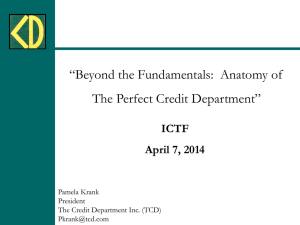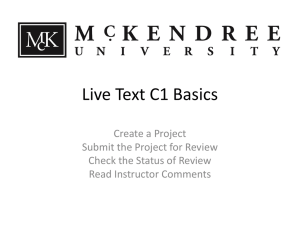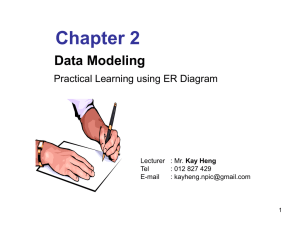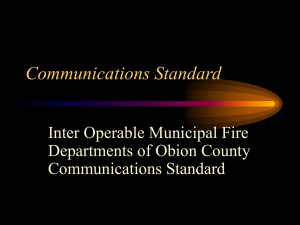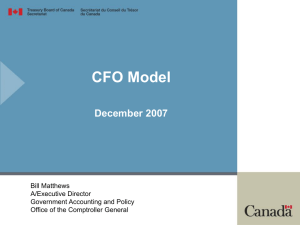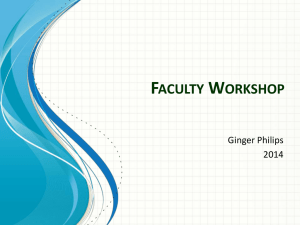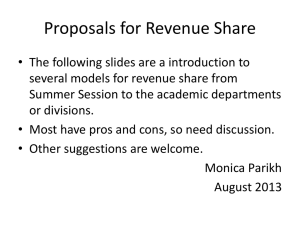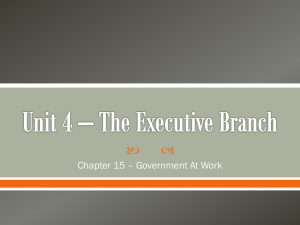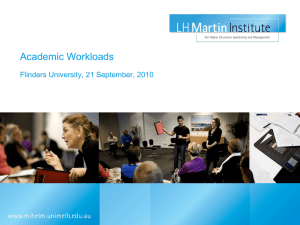AAR Coordinator Overview
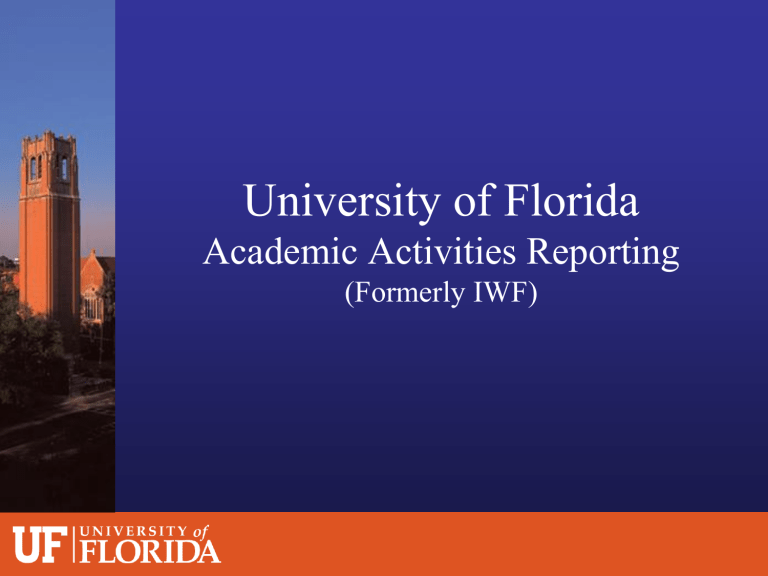
University of Florida
Academic Activities Reporting
(Formerly IWF)
Instructor Workload File (IWF)
The Instructor Workload File (IWF) is used by Departments to allocate student contact hours to course instructors and feed faculty instructional activity into the effort reporting system. A review of the IWF was initiated to address the issue of poor quality of data in the system
– The IWF process and system at the University were evaluated to develop an understanding of the process. The analysis revealed the following challenges:
• Minimal training and process documentation
• Varied understanding of policies and procedures across departments
• Discover of error only after term - Departments unable to make corrections
• Highly manual, time-consuming and complex process
• Limited integration with other UF systems requiring duplicative data entry
– The Project Team considered the findings of the process assessment and agreed on the following actions:
• Replace the existing IWF system with new functionality in myUFL
• Redesign the Instructor Workload system and business processes
• Update Instructor Workload user guides and training materials / enhance existing training
• Actively communicate process changes and achieve broad stakeholder buy-in
Academic Activities Reporting is the new system that will replace the Instructor
Workload File
2
System Improvements
The new Academic Activities Reporting system will incorporate a number of improvements designed to solve problems inherent in the current system
Problem
Limited IWF integration with other UF systems
Highly manual, time-consuming and complex business process
Solution
Integrate GIMS and Section File into the new Academic Activities
Reporting system
Simplify and redesign the business process
Duplicative data entry
Ineffective training
AAR will pre-populate with data from existing UF systems reducing the amount of data keyed in
Develop new training to accompany redesigned process and new system
Minimal process documentation
Misunderstanding of instructor workload policies and procedures
Inability for departments to make corrections
Develop online process and system documentation
Will include user guides, FAQs, quick reference guides, etc.
New AAR training to be developed
Training will be required for the AAR Coordinator role
AAR allows departments to make corrections after the term
The end result will be a streamlined and simplified system that encourages accurate and timely instructor workload entry, and as a result, more accurate and less time-consuming effort reporting
3
New Policies
To encourage departments to complete Academic Activities Reporting as thoroughly and accurately as possible, the Provost has authorized the creation of a incentive system to encourage accuracy and timeliness
– Departments who are top performers in completing Academic Activities Reporting will receive financial rewards following each term
– Rewards will be determined based on the number of errors and incomplete sections the Department has during a term
• Departments with the fewest number of erroneous/incomplete sections per total sections taught will be rewarded
– Reward funds will come from fines assessed based on completion and accuracy goals
OIPR is dedicated to supporting Departments in their successful completion of Academic Activities
Reporting during/after the term:
• Departments will receive summaries of their complete/incomplete sections for their review twice prior to the end of the term
• Departments will have the ability to review and revise Academic Activities Reporting anytime during the semester and after each notification
• Instructors will receive notification prior to the end of the term of all sections to which they have been assigned to provide awareness of instructional activity prior to effort certification
• Departments will have the ability to make corrections to Academic Activities Reporting during the effort certification period
4
Project Timeline
The project timeline centers around completing work on the new Academic Activities Reporting system by early summer and beginning use of the new system by departments in the Fall 2014 term
May
2014
Jun Key Activities
Communications
System development
User Acceptance Testing
Develop new process / system documentation
Develop training
Conduct user training
Cutover to new system
System Stabilization
Feb Mar Apr Jul Aug Sep
Go-Live
5
Project Impacts
The new Academic Activities Reporting system will have a positive impact on departments, faculty, and the
University as a whole:
Departments
– Identification and distribution of contact hours among instructors easier and more intuitive
– Processes will be automated where possible, minimizing manual calculation, eliminating guesswork, and significantly reducing data entry
• Data entered in the Schedule of Courses and Graduate Information Management System (GIMS) will flow through, pre-populating the new system
• Timely and accurate data in these systems is determinative of the accuracy of effort
– Departments will have the ability to make corrections to the new Academic Activities Reporting system after the term and in-line with Effort Certification process, thus reducing errors in effort
Faculty
– Accuracy of effort certification reports will be improved requiring less time to track down errors and certify
– Ability to preview courses assigned will allow instructors to alert workload/effort coordinators of potential errors before they enter the effort system
University
– Improved effort accuracy reduces a regulatory risk from the federal and state government and ensures more representative state funding and uninterrupted grant funding across the University
6
Conclusion
The Academic Activities Reporting system and process will benefit Faculty, Departments, and Core Offices by:
– Improving accuracy of effort certification reports
– Reducing the time required by Faculty to certify effort
– Reducing the time and effort required by Departmental staff to prepare Academic Activities Reporting
– Making Academic Activities Reporting simpler and more intuitive than Instructor Workload
– Automating processes where possible, requiring less calculation, guesswork, and duplicative data entry
Campus support is essential to ensure the success of this effort. Colleges and Departments can help by:
– Elevating the role of the Academic Activities Coordinator and Academic Activities Reporting in departmental processes
– Treating Academic Activities Reporting as part of the overall end-to-end process that begins with course scheduling and ends with effort reporting
– Making time for departmental staff to attend / take training
– Being dedicated to producing accurate and complete Academic Activity and Effort Reporting
– Providing feedback to help enhance the process and system
The Core Office is dedicated to providing the resources and training needed for Colleges and
Departments to be successful. In turn, it is essential that Campus actively supports the process
7
What’s Next?
– System development underway
– Change management communications with department staff through June 2014
• Messages to Instructor Workload Coordinators will be sent periodically via list serve
• In-person meetings with Instructor Workload Coordinators will be conducted in April - June
• Project updates will be posted to OIPR’s website beginning in May
– Anticipated system completion by late May
– Training for department staff available in July 2014
– Cutover to new system in August 2014
8
